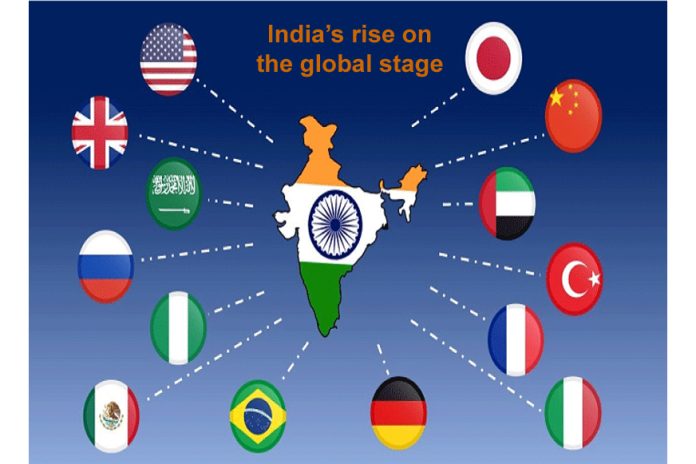In a resounding display of diplomatic prowess, India has once again asserted its significant presence on the global stage by securing key positions within various UN bodies. The recent elections, particularly the re-election of Jagjit Pavadia to the International Narcotics Control Board (INCB), underscore India’s commitment to international cooperation and its proactive stance in addressing pressing global issues. Such victories not only reflect India’s growing influence but also its unwavering dedication to fostering unity and shared responsibility in the international community. The re-election of Jagjit Pavadia to the INCB for a third term exemplifies India’s expertise and leadership in combating the global drug menace. Pavadia’s reappointment is a testament to her exemplary contributions to international drug control efforts and her sterling reputation within the UN.
India’s success extends beyond Pavadia’s re-election, as the country has secured seats on several other key UN bodies, including the Commission on the Status of Women, the Executive Board of the United Nations Children’s Fund, and the Executive Board of the World Food Programme. These achievements underscore India’s commitment to promoting gender equality, protecting the rights of children, and addressing global hunger and food insecurity. By actively engaging in these bodies, India demonstrates its resolve to contribute constructively to global deliberations and advance the well-being of all nations.
India’s election to these prestigious UN bodies reflects not only the country’s diplomatic prowess but also its adherence to the principle of ‘Vasudhaiva Kutumbakam’-the world is one family. This guiding philosophy underscores India’s belief in the interconnectedness of all nations and its commitment to promoting cooperation and mutual respect on the international stage. As Ambassador Ruchira Kamboj aptly stated, India remains steadfast in its dedication to fostering unity and shared responsibility for the betterment of all humanity.
India’s ascent as an economic powerhouse in recent years has significantly contributed to its diplomatic achievements. Alongside its robust diplomatic efforts, India’s proactive role in assisting countries during crises, such as the COVID-19 pandemic and natural disasters, has been widely praised. Moreover, India’s successful hosting of the G20 summit and its pivotal role in fostering consensus on economic initiatives spanning across continents have further bolstered its global reputation and influence. These factors have undoubtedly influenced member countries within the UN to support India’s candidacy for prestigious positions. The tireless efforts of diplomats and officials, the dedicated work of India’s Permanent Mission to the UN, and the team at the Ministry of External Affairs have all contributed immensely.
With 41 votes out of 53 voting members of the Economic and Social Council (ECOSOC), India secured the highest number of votes among all winning member states, underscoring the widespread support and trust placed in India’s leadership. Such recognition not only elevates India’s standing within the UN but also amplifies its voice on critical issues affecting the global community. India’s achievements at the UN are a testament to the country’s unwavering commitment to multilateralism and its proactive engagement in global affairs. By securing key positions within various UN bodies, India has positioned itself as a responsible and proactive global player, ready to contribute meaningfully to addressing the most pressing challenges of our time. Whether it is combating drug trafficking, promoting gender equality, or addressing food insecurity, India stands ready to play a leading role in advancing the collective interests of the international community.
India must continue to leverage its newfound influence within the UN to address the myriad challenges facing the world today. Whether it is climate change, global health crises, or economic inequality, India has a pivotal role to play in shaping the international agenda and advancing solutions that benefit all nations. By upholding the principles of inclusivity, cooperation, and solidarity, India can truly fulfil its potential as a global leader and contribute to building a more equitable and sustainable world for future generations.


